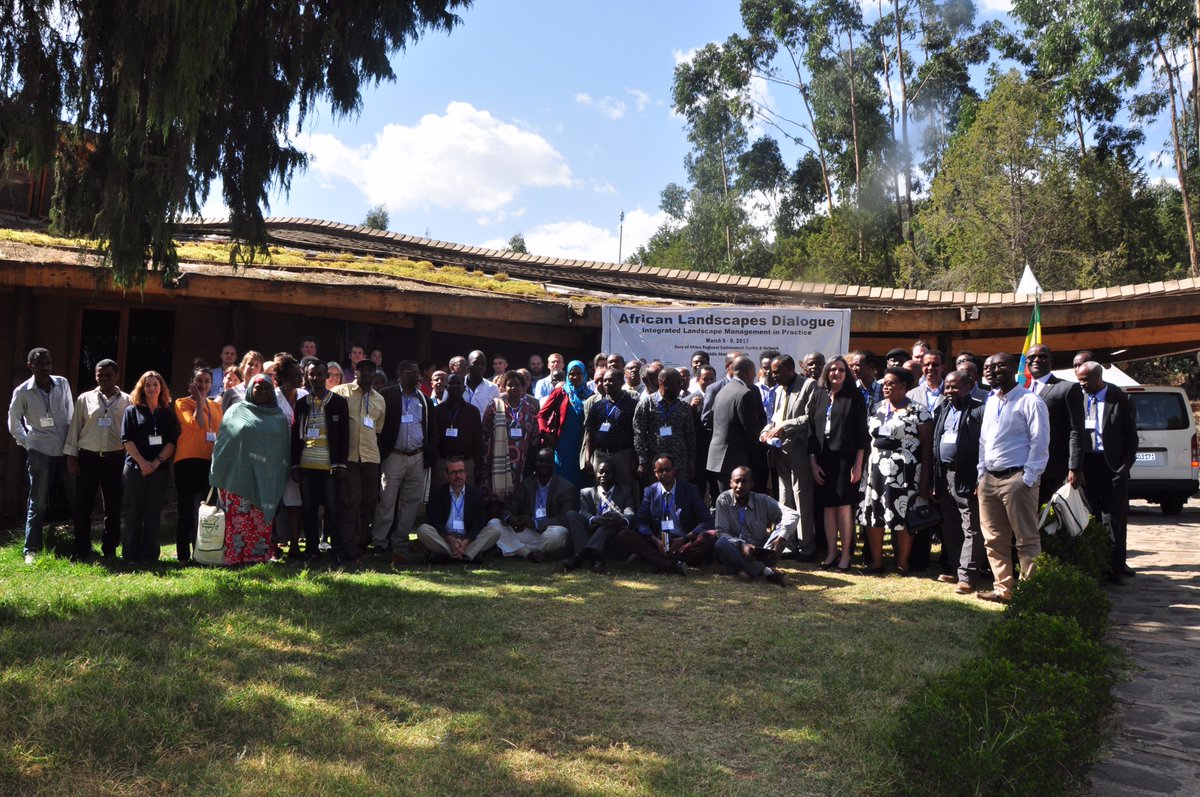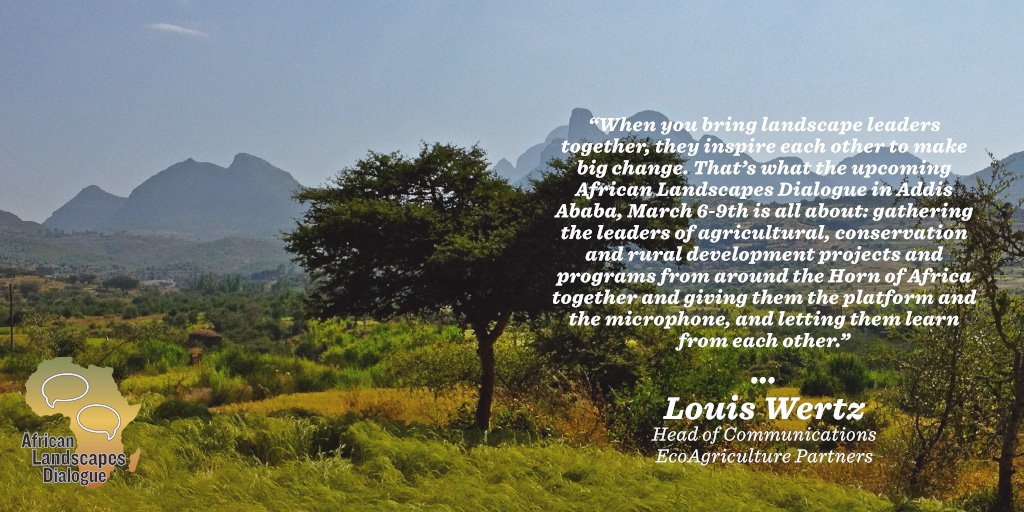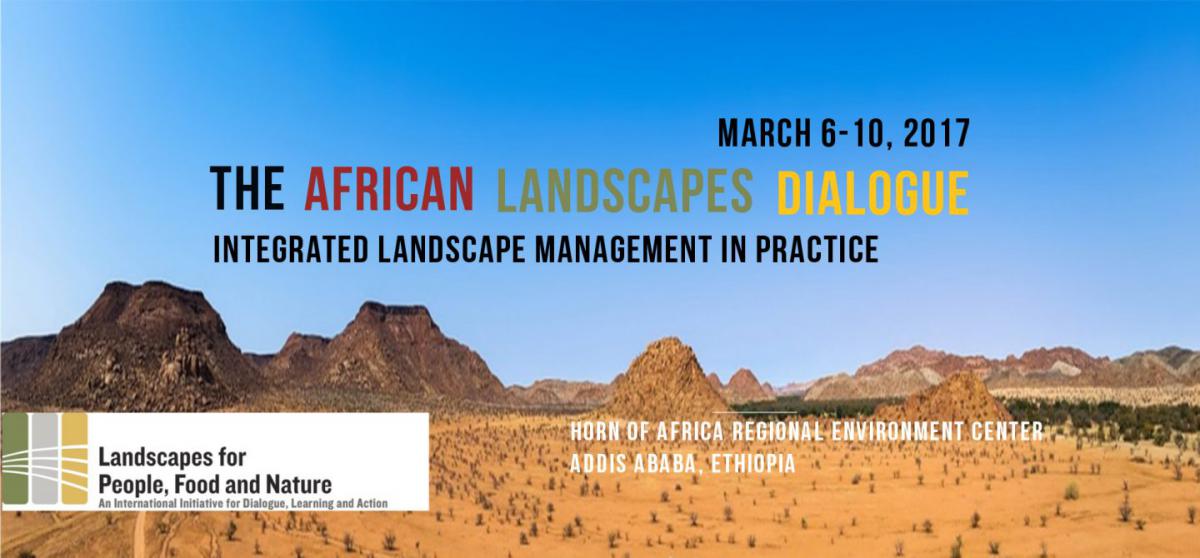Dowload the full workshop report (PDF)
Each company representative touched on the critical challenges they experience in their direct environment, which are often related to natural resource management, governance, infrastructure and community relations. Their insights came from different parts of Ethiopia and from a range of sectors including aquaculture, dairy, cereals, pulses, vegetables and horticulture.
With over 30 conference participants eager to learn about the role of business in landscapes, the group split into smaller groups each focusing on the specific case of one company. The aim of the exercise was threefold:
- to discover the key landscape challenges
- to assess the company’s sense of responsibility to act
- to understand the leverage of the company to actually deal with the challenges at hand
Lastly, the focus of the discussion turned to what companies need to enable solution-oriented action in their landscape context.
Infrastructure not in place
A major challenge from the business perspective that stood out is the lack of functioning infrastructure, especially roads and access to electricity. Consequently, companies have made substantial investments to get their business up and running, even going so far as building their own roads and power sources.
Some regret not having invested in solar energy in an earlier phase because they are still waiting for a connection to the general electricity grid. Companies often hold the sentiment that government is not delivering on these public services, while the conditions to invest are high and finance – especially for Ethiopian entrepreneurs – is hard to attract.

Land and water management: shared effort
Land and water management has also proven a challenge on farm and on a landscape scale for all five companies. Where one faces the frequent risk of flooding, others struggle with water scarcity.
In both cases, solutions are available by way of rainwater harvesting, improvement of drainage canals and creation of water collection points on community lands to deal with the excess water. For water-scarce areas, reservoirs and groundwater pumps could be constructed.
However, this kind of infrastructure development also requires government permission and support, which, in practice, delays or complicates action on the ground.
We need a demarcation of roles and responsibilities for company and government. In my experience, when the company does not fulfill conditions, the land lease is withdrawn or the business license is taken away. If the government does not deliver on promises, there are no further consequences. There is need for a multisector approach in which the government provides for an enabling environment, private sector provides job opportunities and civil society works on awareness and the mindset in society for responsible business. – Takele Teshome from BLMM Plc
Education, skills and partnerships
Solidaridad experts at the conference noted how proactive all five companies are in engaging with local agricultural colleges, universities or research institutes. Their motivations went beyond the need for scientific knowledge, but touched on developing partnerships and building local capacity in agricultural practices that are specifically relevant to the area.
There is a real need for practical trials on the farm, to seek out most suitable varieties when introducing new crops such as rice and pulses, to test different irrigation schemes or to bring in new technology such as a seed row planter for the traditional crop tef. Combining education and learning on the job is considered a great way to develop skills and knowledge for the required agricultural expertise tailored to the local environment.
For us, the long-term goal is to have a model farm which can function as a central point for relations between farmers, communities, students, the research centre and company to provide opportunities for interaction in the landscape. – Jyothi Reddy from NINT Agri Plc

The landscape approach makes business sense
Solidaridad is active in a diverse range of landscape programmes where engagement of business actors is critical for achieving integrated landscape management. Together with partners, Solidaridad seeks to capitalize on these experiences and showcase different examples of how business contributes to the landscape puzzle: by testing sustainable practices, mobilizing partnerships and investing in their business, the people and the environment.
Solidaridad has the ambition to further this learning journey on Business for Sustainable Landscapes as part of the Landscape for People Food and Nature partnership. Next steps will focus on building the evidence with examples of how different types of companies play very different roles in their specific landscape contexts, from a farmer cooperative to a multinational. This information is geared to inspire future business engagement in landscape initiatives.
Download the full workshop report (PDF)

